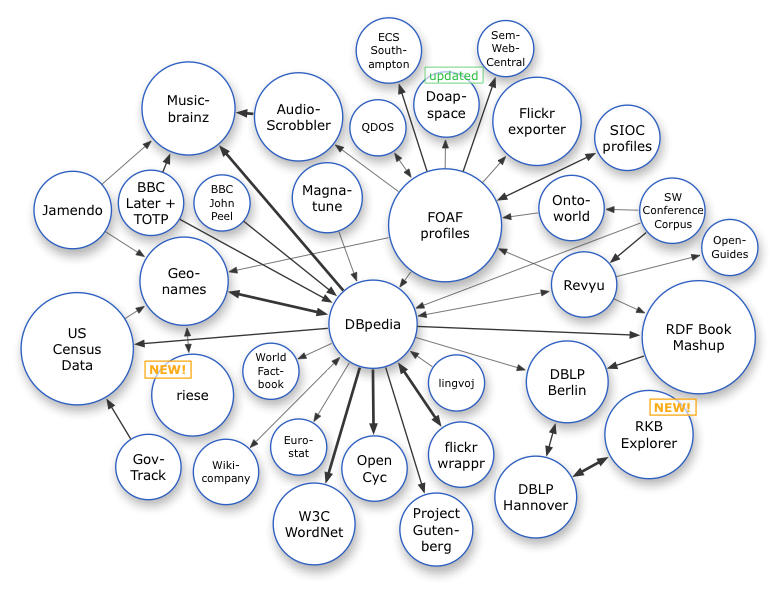# Education in the Linked Data Age
On the 22nd May 2008 in Oxford there will be a talk by the BCS entitled “Education in the Internet Age“, unfortunately I would have moved to Bristol by then and should be in the middle of settling in and getting used to the new environment. However, it doesn’t stop me thinking about writing a post about “Education in the Linked Data Age”.
OK, so the abstract for the BCS presentation is:
Children are now living in a fully accessible, high availability and high speed internet society. To adapt to this new age schools must be ready to embrace IT and offer services to all of its participants - the teachers, school staff, pupils and parents. This presentation will discuss the needs of a modern school before showing examples of how RM is embracing some of those needs with its Learning Platforms suite of products.
So, I don’t really know what the requirements of a school are, but I what I do know is that the current web is full of a load of useful information which kids should know about, and a load of useless information which could get lost in. This is where the emerging Linked Data Web will come in handy!
Everyone that has some experience of the web knows of Wikipedia, and Wikipedia is becoming a more and more reliable (and respected) source of information, as most of the articles are updated, validated and verified by lots of people (and software “bots”). I think most kids of today who are on the web certainly know about wikipedia, and probably use it in their homework (probably without proper referencing ![]() ). So how can we make this better?
). So how can we make this better?
Wikipedia is an unstructured system, it does have categories and certain bits of metadata, but it is not very structured in its entirety. A system like DBpedia on the other hand is a structured system, it takes all the information from wikipedia and does some fancy internal work to make a complex data structure which can be viewed, browsed or queried…. however it probably is quite complex looking to the average 12 to 16 year old! So this needs to be worked on (and is).
With a Linked Data system, such as DBpedia, the user is capable of browsing from one resource to the next getting more useful information about a particular subject…. for example if a kids home work was something like “write a 200 word essay about a landmark of Bristol” then the kid would have to find out about Bristol first, and then choose one of the landmarks (such as the Clifton Suspension Bridge), which is a doddle using a Linked Data System. With Linked Data Queries homework could be taken even further as “finding out the dates of birth of all your favourite solo musicians” can be written as one SPARQL query.
Now the idea of a Linked Data system isn’t necessarily to make things easier, but it will. The idea of a Linked Data system is to provide more information if and when the user wants it, so for example a DBpedia article on Ted Hughs (the poet) would link to his works which are freely available online. Which means that the student would be able to find out about Ted Hughs, where he was from, what kind of things that he wrote about and so on.
Surely Primary, Secondary and Further Education could benefit from from the Linked Data Web which is being built:

(Linking Open Data Set Cloud Image by Richard Cyganiak, Licensed under a CC By SA 3.0 License)
I am not sure who I am targeting this blog post at, but I am sure it will spark some kind of interest from the following people:
- Educators/Teachers (may be interested in this whole technology)
- Semantic Web / Linked Data Developers (may be interested in making things even simpler)
- Education Technology Companies (may be interested in using a system such as Virtuoso for their system, in order to provide structured and Linked Data)
If there is some interest then I could write more on this, send me an email or give me a comment if you would like me to continue to write on this subject.
Thank you,
Daniel
